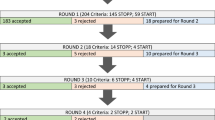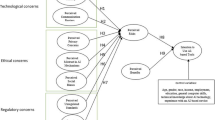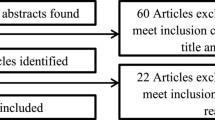Abstract
Background
Medical information (MI) departments play an integral role in providing fair and scientifically balanced MI to health care professionals, patients, and caregivers. Though there have been multiple surveys conducted to assess the value of MI, insights on what the informational needs are from the perspective of the health care professional to confidently making patient care decisions have not been addressed. A survey administered to health care professionals that collected insights and feedback on the utility of MI services across different pharmaceutical companies provided an understanding of the informational needs of different health care professionals for prescribing drug therapy with confidence.
Methods
A total of 276 health care professionals who requested medical information in a 6-month time frame from 8 companies completed a 30-minute Internet-based survey (n = 260) or a 20-minute telephone survey (n = 16).
Results
Most health care professionals preferred obtaining medical information from traditional routes such as discussions with sales representatives or via the telephone, while very few preferred alternate routes such as mobile applications, video chats, or text. The type of medical information requested among practitioners included topics related to dosing, safety, patient selection, and differentiating between therapeutic options. When making patient care decisions, health care professionals identified 3 levels of evidence—prospective studies, practice guidelines, and meta-analyses—to be most important. Medical information responses were used for education purposes and provided physicians the confidence to make treatment decisions. For nurse practitioners/physician assistants, nurses, and pharmacists, the information provided by MI departments enhanced the quality of patient management.
Conclusions
These findings provide information regarding the utility of medical information services while providing insights on the informational needs of health care professionals today. MI departments provide an important service to health care professionals that impart confidence for making treatment decisions.
Similar content being viewed by others
References
Nojiri C, Patel C. Call handling in the pharmaceutical industry: a benchmarking survey. Drug Info J. 2011;35:337–343.
Guillot P, Fung S. Pharmaceutical medical information contact centers: results of three benchmarking surveys. Drug Info J. 2010;44:569–579.
Black P, Marsh C, Ashworth L. Assessment of customer satisfaction with verbal responses provided by a pharmaceutical company’s third-party medical information call center. Drug Info J. 2009;45:261–271.
Fung SM, Merriman L, Cawley M. Assessing medical information needs via an Internet-based survey. Drug Info J. 2009;43:509–518.
Santhouse A, Albano DL. Evaluation of Wyeth medical communications written responses and the impact on prescribing. Drug Info J. 2003:37:445–450.
Rawn P. Hoffmann-La Roche Ltd. Drug information and safety department survey of customer needs and satisfaction. Drug Info J. 1999;33:525–539.
Bauman JH, Bettenhausen DK. Evaluation and effectiveness of a pharmaceutical-based drug information service. Drug Info J. 1994;28:657–665.
Baker RP. User survey of an industry-based drug information service. Drug Info J. 1990;24:235–243.
Fuentes RJ, Kim R, Idowu K, Susla G. Analysis of medical information responses to unsolicited health care worker inquiries submitted via sales representatives or customers directly. Therapeutic Innovation & Regulatory Science. 2014;48:155–161.
Bordoloi P, Gazo A, Parajpe K, Clausen M, Fierro L. Medical information service in the age of social media and new customer channels. Drug Info J. 2011;45:811–818.
Anonymous. phactMI. phactMI org. 2015. Available at https://www.phactmi.org/. Accessed January 4, 2016.
Giffin SA, Baumeiste P, Bowers D. Review of the evolution of medical information in light of changes in the external landscape. Therapeutic Innovation & Regulatory Science. 2014; 48:NP6–NP1
Author information
Authors and Affiliations
Corresponding author
Rights and permissions
About this article
Cite this article
Fung, S.M., Chang, D.Y., Patel-Romero, R. et al. Survey of Health Care Practitioners’ Preferences for Medical Information: Collective Insights for Impacting Patient Care. Ther Innov Regul Sci 50, 569–576 (2016). https://doi.org/10.1177/2168479016641719
Received:
Accepted:
Published:
Issue Date:
DOI: https://doi.org/10.1177/2168479016641719




